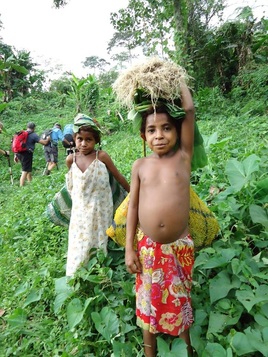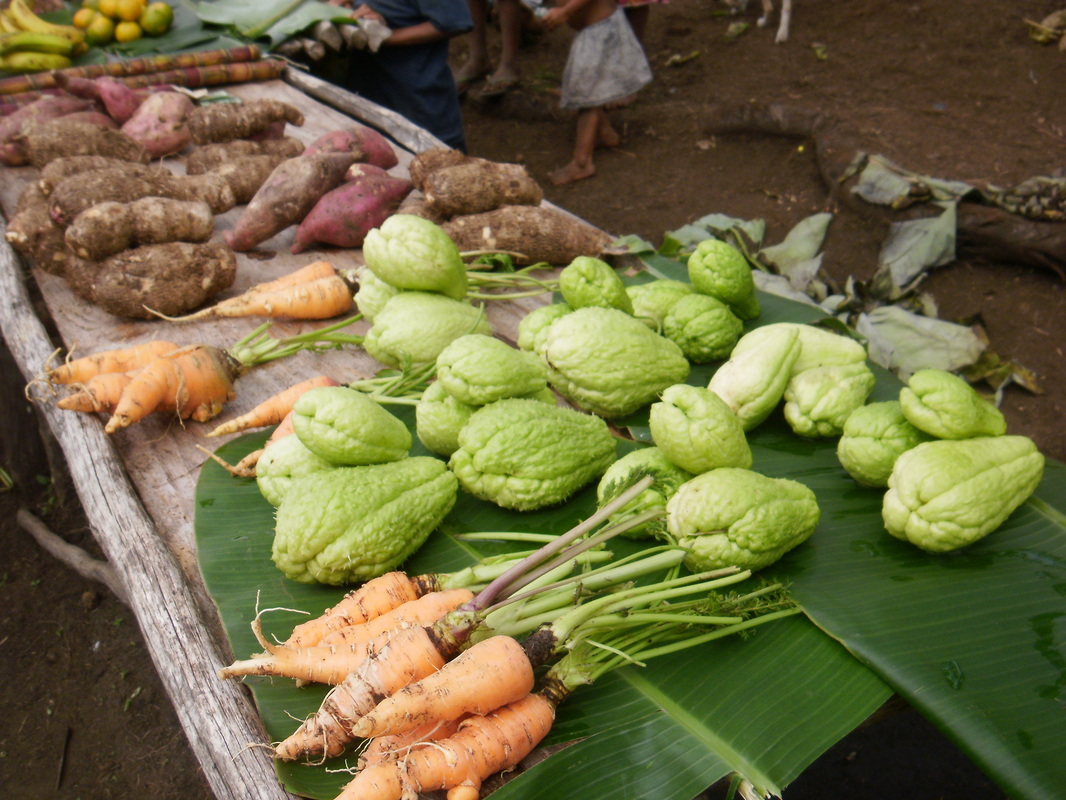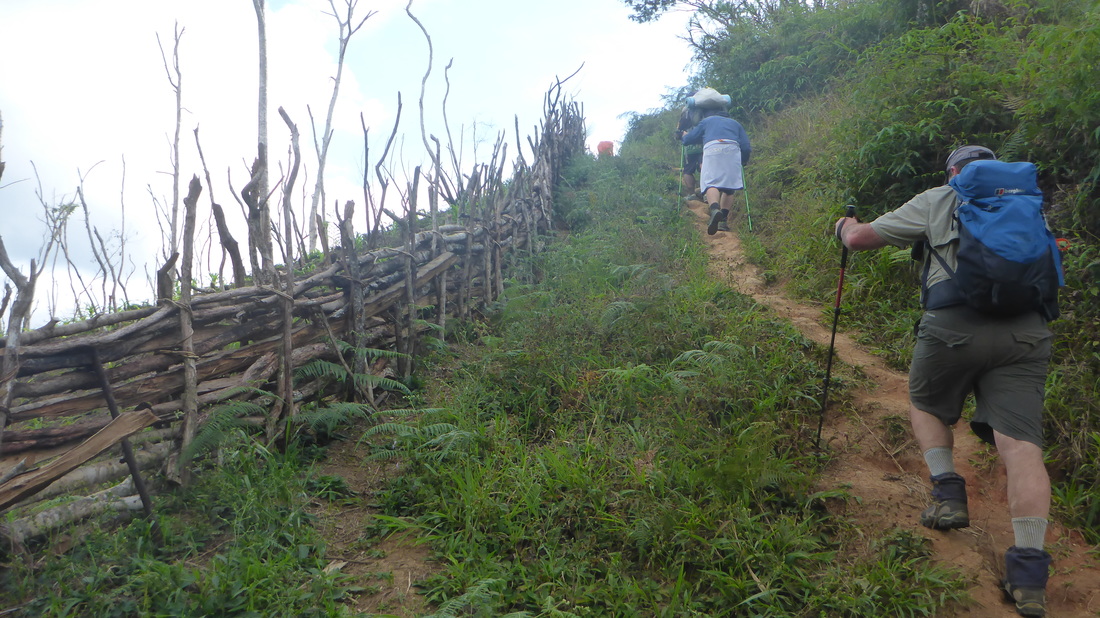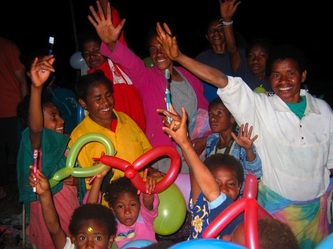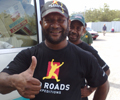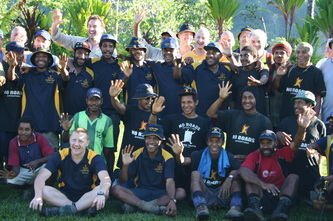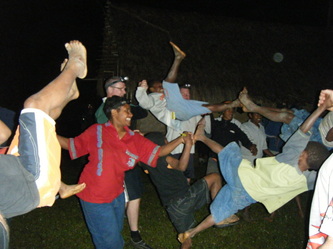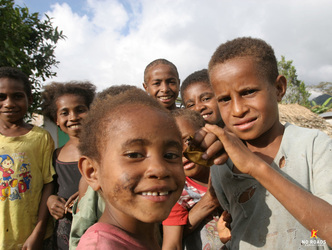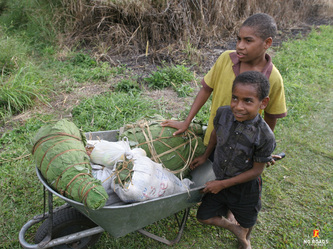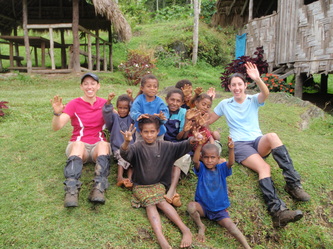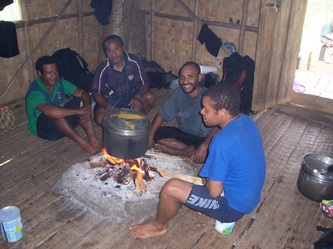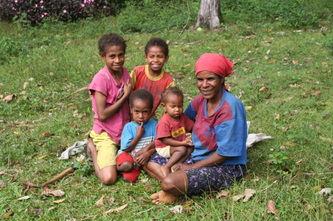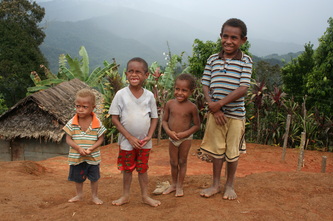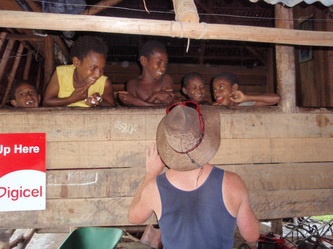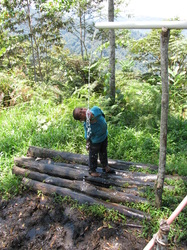|
The Koiari people generally inhabit the area between the foothills of the Owen Stanley Ranges east of Port Moresby and Kokoda. They once built homes in tree-tops and when Europeans first encountered them in the 1880's, they were renowned for their fierceness.
Today, the Koiari are Seventh Day Adventists so they do not raise or eat pigs, chew betel nut or smoke tobacco. Please respect the culture and religion of the communities. People observe prayer daily between 5.00 pm and 6.00 pm, and their Sabbath from 5.00 pm Friday to 6.00 pm Saturday. They grow taros, bananas, yams, vegetables and recently coffee. They are very friendly people, however young female Koiari are particularly shy and reserved and you should respect their wishes if they do not want to talk. It’s important to understand that when you are travelling around the region you are walking through “someone’s backyard” and everything is either communally owned or owned by a family or tribe. Always remember, there are certain cultural taboos that must be observed. Always ask your local guide if you are not sure if a certain request will or will not offend the local people and their custom. |
Also, be aware that men and women bathe in different places; usually the women bathe down stream from the men. The same can apply to toilets, so ask first. Be sensitive, as this is of great importance to the people.
Social unrest along the Track is also very unlikely. We have excellent relations with all the land owners along the Track, who are treated fairly and compassionately by No Roads. They assure our safe passage along the Track. To add to this security is our well respected lead and local guides. They have great influence with all village heads assuring our safe passage.
Social unrest along the Track is also very unlikely. We have excellent relations with all the land owners along the Track, who are treated fairly and compassionately by No Roads. They assure our safe passage along the Track. To add to this security is our well respected lead and local guides. They have great influence with all village heads assuring our safe passage.
|
|
Marc Stafford - Expedition Guide
|
Daniel Hogarth - Expedition Guide
|
Local People
Communicating in the Local Language
The number of languages spoken in PNG: over 800, more common is Pidgin and Motu. However most of our guides learn English at school and can speak it quite well, impressive as this would be their 2nd or 3rd language! Some homework for you in relation to how places are pronounced and common terminology used by the PNG locals:-
|
|
Kokoda Track Authority (KTA)
The Kokoda Track Authority (KTA) is a Special Purpose Authority of the Kokoda and Koiari local level Governments established in 2002. In mid-2008, the previous Board’s appointment was rescinded by the then Government and a new Board or Management Committee was established in September, 2008.
The trekking fees obtained by the KTA go into projects to improve the lives of the people and communities living along the Kokoda Track and also go towards improving facilities for trekkers. The fees derived from each trekker supply a vital source of income to the people and the region.
The KTA has the responsibility of managing the trekking industry, and the trekking experience on the Kokoda track and provide benefits to the community through the Trekking Industry.
The KTA works closely with the tourism providers to encourage and maintain the tourism industry in the Kokoda Track but also to regulate the conduct of tour operators. The KTA ensure the preservation of the environment along the track and the sustainable development of the area.
The trekking fees obtained by the KTA go into projects to improve the lives of the people and communities living along the Kokoda Track and also go towards improving facilities for trekkers. The fees derived from each trekker supply a vital source of income to the people and the region.
The KTA has the responsibility of managing the trekking industry, and the trekking experience on the Kokoda track and provide benefits to the community through the Trekking Industry.
The KTA works closely with the tourism providers to encourage and maintain the tourism industry in the Kokoda Track but also to regulate the conduct of tour operators. The KTA ensure the preservation of the environment along the track and the sustainable development of the area.
